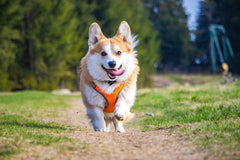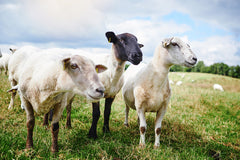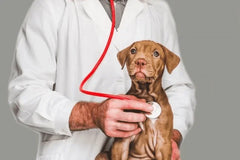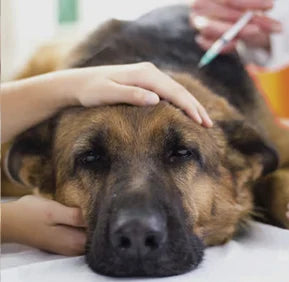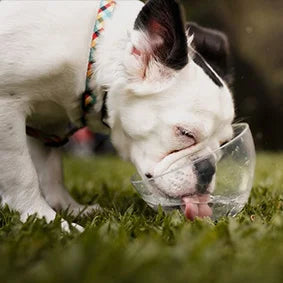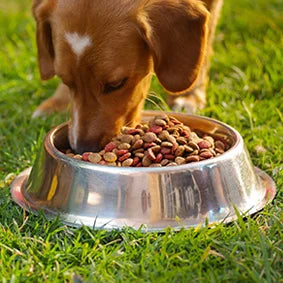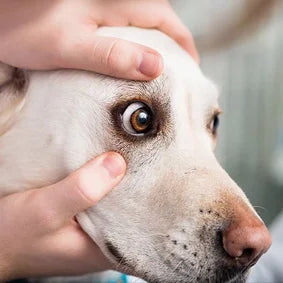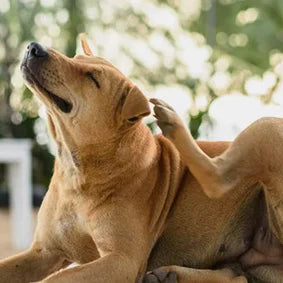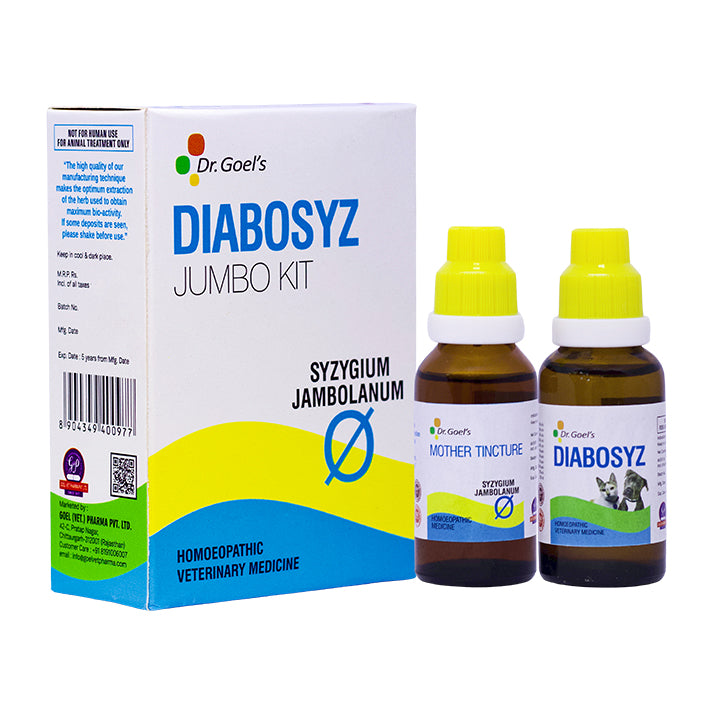Diabetes can also occur in pets, including dogs and cats. The condition is similar to diabetes in humans and involves the inability to regulate blood sugar levels effectively.
Here are four potential causes or risk factors associated with diabetes in pets:
-
Genetics
Certain breeds of dogs and cats have a higher predisposition to developing diabetes. For example, in dogs, breeds like Poodles, Schnauzers, Beagles, and Samoyeds have a higher risk. In cats, Burmese cats are known to have an increased susceptibility. Genetic factors can influence the functioning of the pancreas and the body's ability to produce or utilize insulin.
-
Obesity
Obesity is a significant risk factor for developing diabetes in both dogs and cats. Excess body fat can lead to insulin resistance, where the body's cells become less responsive to insulin. As a result, the pancreas must produce more insulin to regulate blood sugar levels, eventually leading to a state of insulin insufficiency and diabetes.
-
Pancreatitis
Inflammation of the pancreas, known as pancreatitis, can affect the production of insulin. Pancreatitis can be caused by various factors, including dietary indiscretion, obesity, certain medications, or underlying health conditions. Chronic pancreatitis can lead to long-term damage to the pancreatic tissue, affecting insulin production and increasing the risk of diabetes.
-
Other Health Conditions
Certain medical conditions can predispose pets to developing diabetes. For example, Cushing's disease (hyperadrenocorticism) in dogs and hyperthyroidism in cats have been associated with an increased risk of diabetes. These conditions can affect hormone levels and disrupt the body's ability to regulate blood sugar effectively.
Tips for preventing Diabetes in Pets
Prevent diabetes in pets by avoiding overfeeding and high-calorie treats. Obesity is a major risk factor, so maintain a healthy weight through a balanced diet and exercise. Collaborate with your veterinarian for a weight loss plan tailored to your pet’s needs, incorporating regular physical activity to improve insulin sensitivity and prevent obesity-related issues.
Other symptoms of Diabetes in pets
Here are eight common symptoms of diabetes in pets:
-
Increased Thirst (Polydipsia)
Pets with diabetes often experience excessive thirst and may drink more water than usual.
-
Frequent Urination (Polyuria)
Diabetes can lead to increased urine production, causing pets to urinate more frequently, have accidents in the house, or need to go outside more often.
-
Increased Appetite (Polyphagia)
Despite eating more, pets with diabetes may still lose weight or have difficulty gaining weight due to their body's inability to properly utilize glucose for energy.
-
Weight Loss
Unexplained weight loss is a common symptom of diabetes in pets. Despite having an increased appetite, their bodies may not effectively convert food into usable energy.
-
Lethargy And Weakness
Diabetic pets may appear lethargic, tired, or weak. They may have reduced energy levels and be less active than usual.
-
Changes In Coat And Skin
Diabetes can affect the health of a pet's coat and skin. Their fur may become dry, dull, or have a poor texture. They may also develop skin infections or have slow-healing wounds.
-
Vision Problems
In dogs, cataracts can develop as a result of diabetes. Pets may exhibit cloudiness or opacity in their eyes, leading to impaired vision or even blindness.
-
Recurrent Infections
The pet having a history of diabetes is very prone of developing secondary infections on exposure to other bacteria, viruses or fungi. This can be exhibited in the form of respiratory infections, skin infections etc
Treat your Pet from Diabetes with Dr. Goel’s DIABOSYZ Jumbo Kit
DIABOSYZ JUMBO KIT for PETS 30ML is the best remedy for treating conditions of For Diabetes and associated problems. DIABOSYZ JUMBO KIT contains two medicines one is Syzygium Jambolanum Q 30ML and the other one is DIABOSYZ — 30 ml which is a Homeopathic Veterinary Medicine that regulates the Hormones in pets by stimulating the Pancreatic gland. DIABOSYZ JUMBO KIT is the best Homeopathic Veterinary Medicine for pet animals in the case of For Diabetes and associated problems like frequent urination, unusual thrust, loss of body weight, etc.
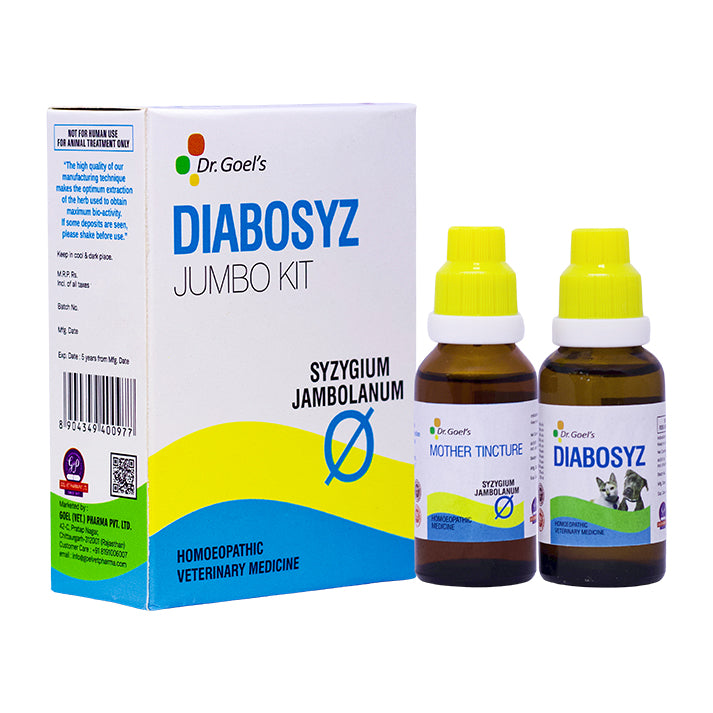
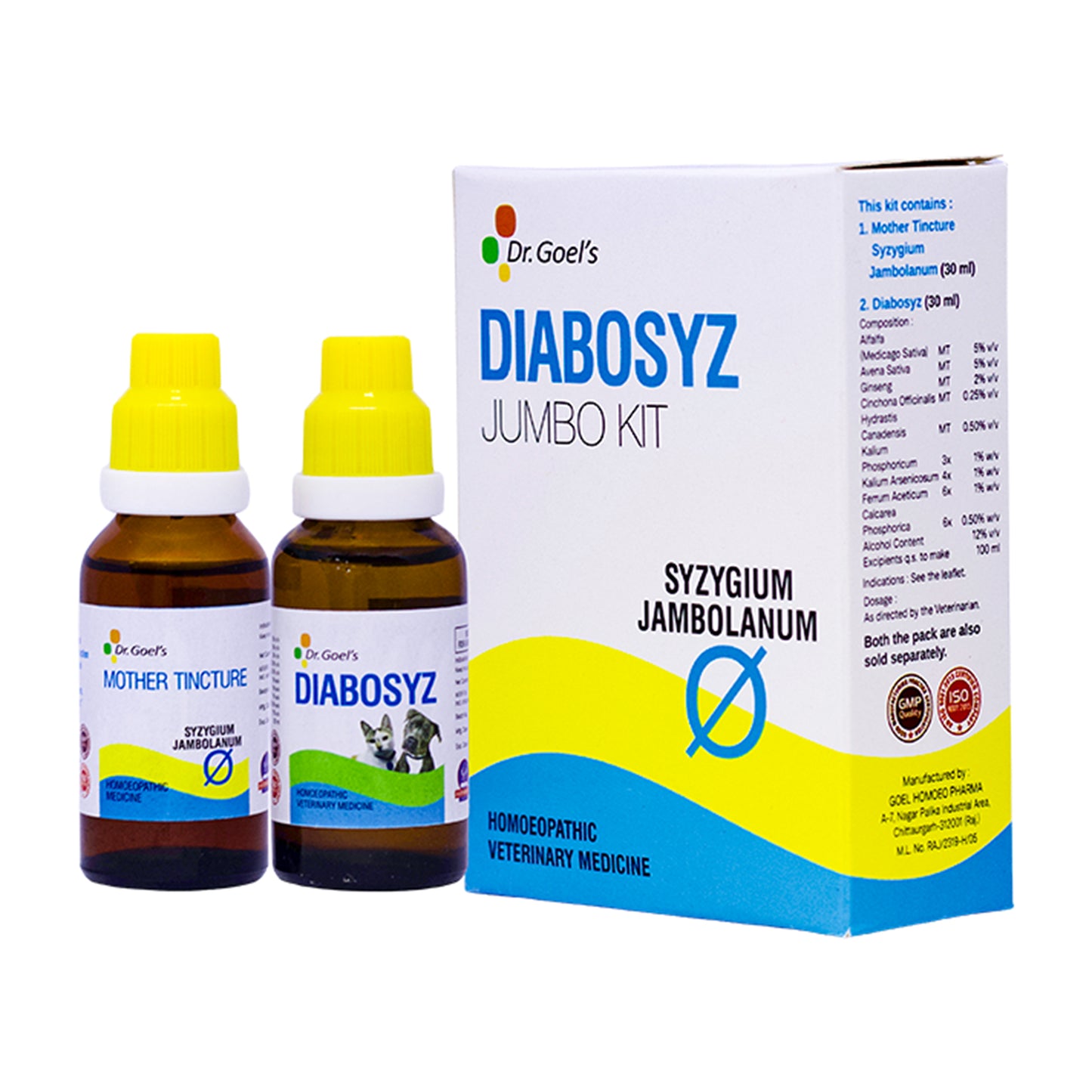
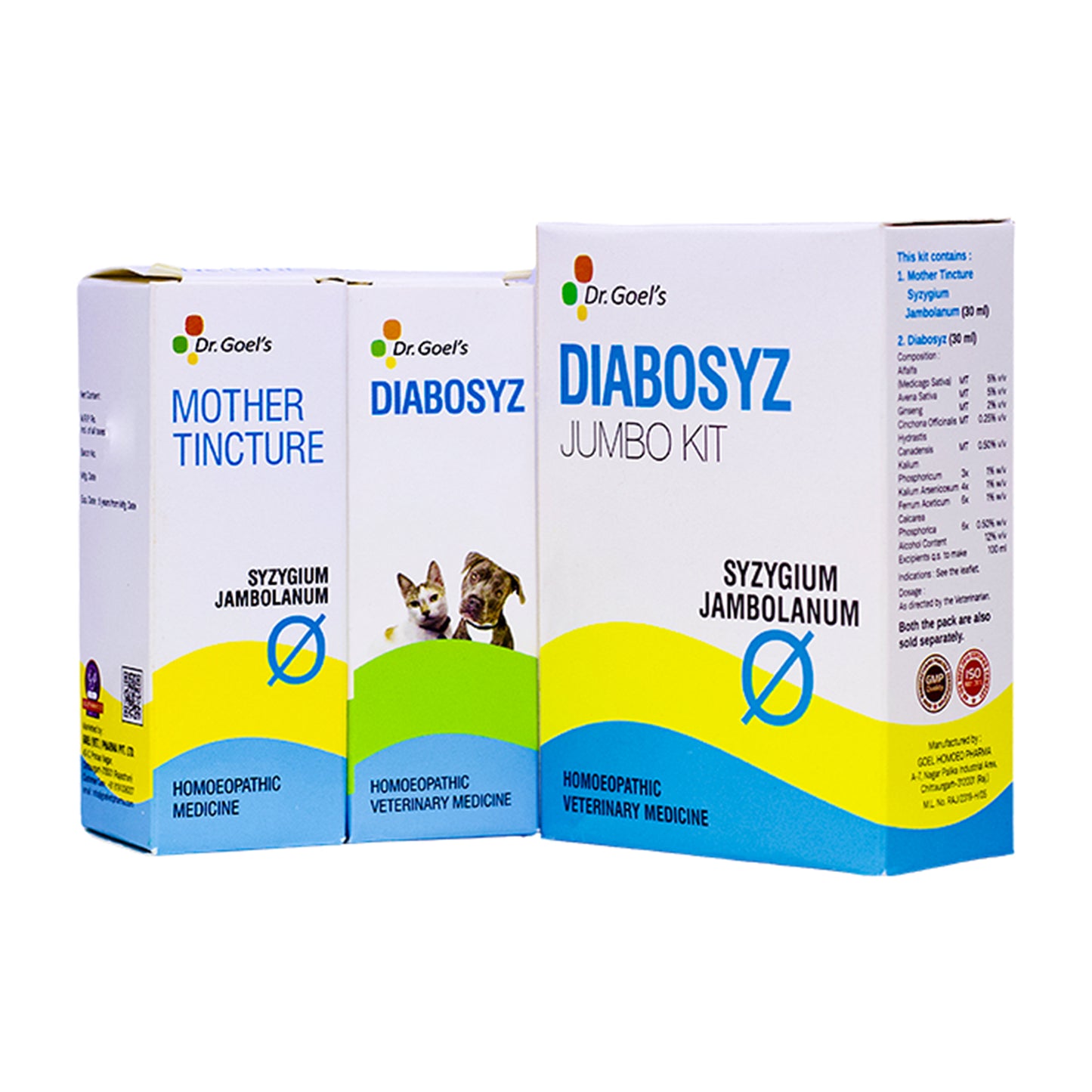
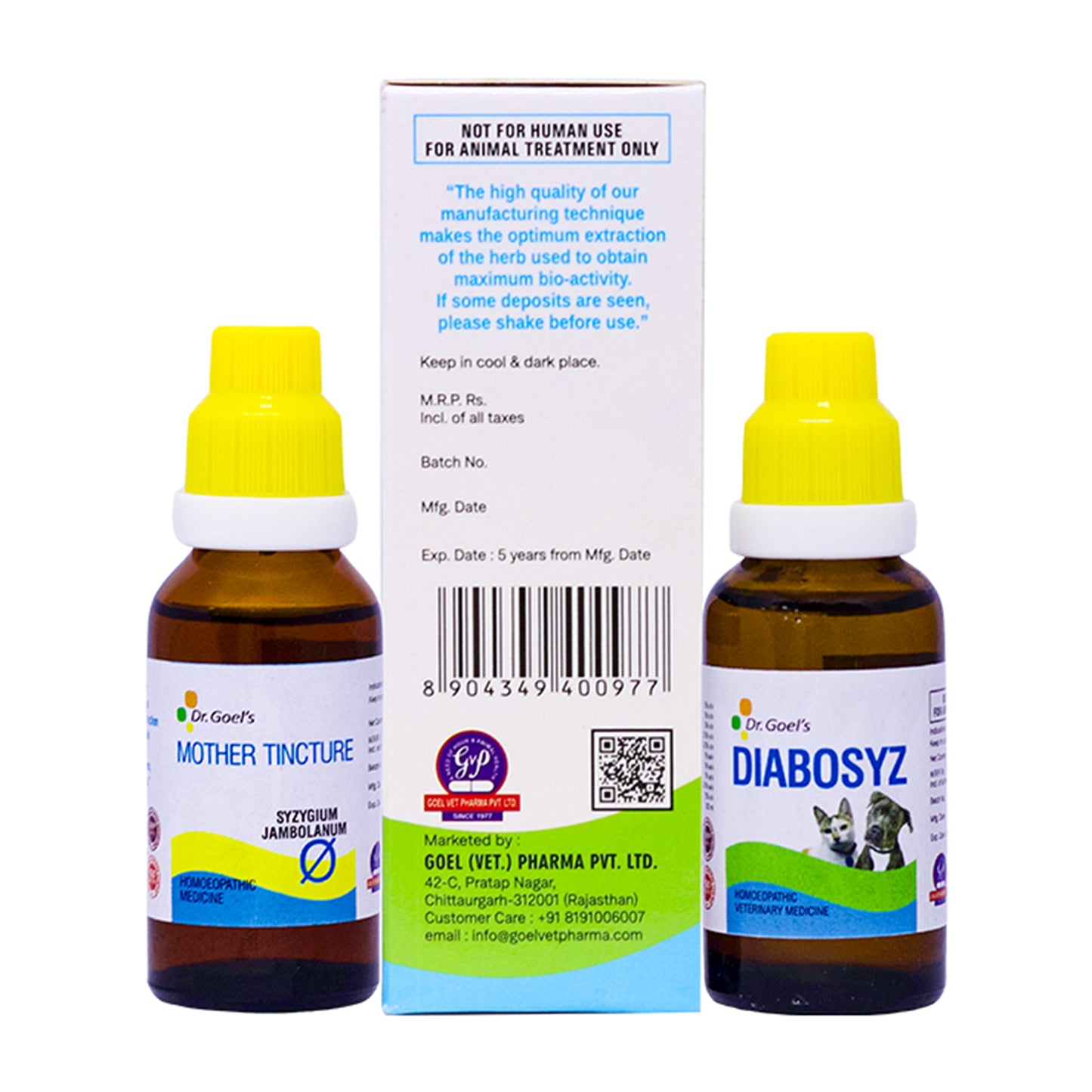
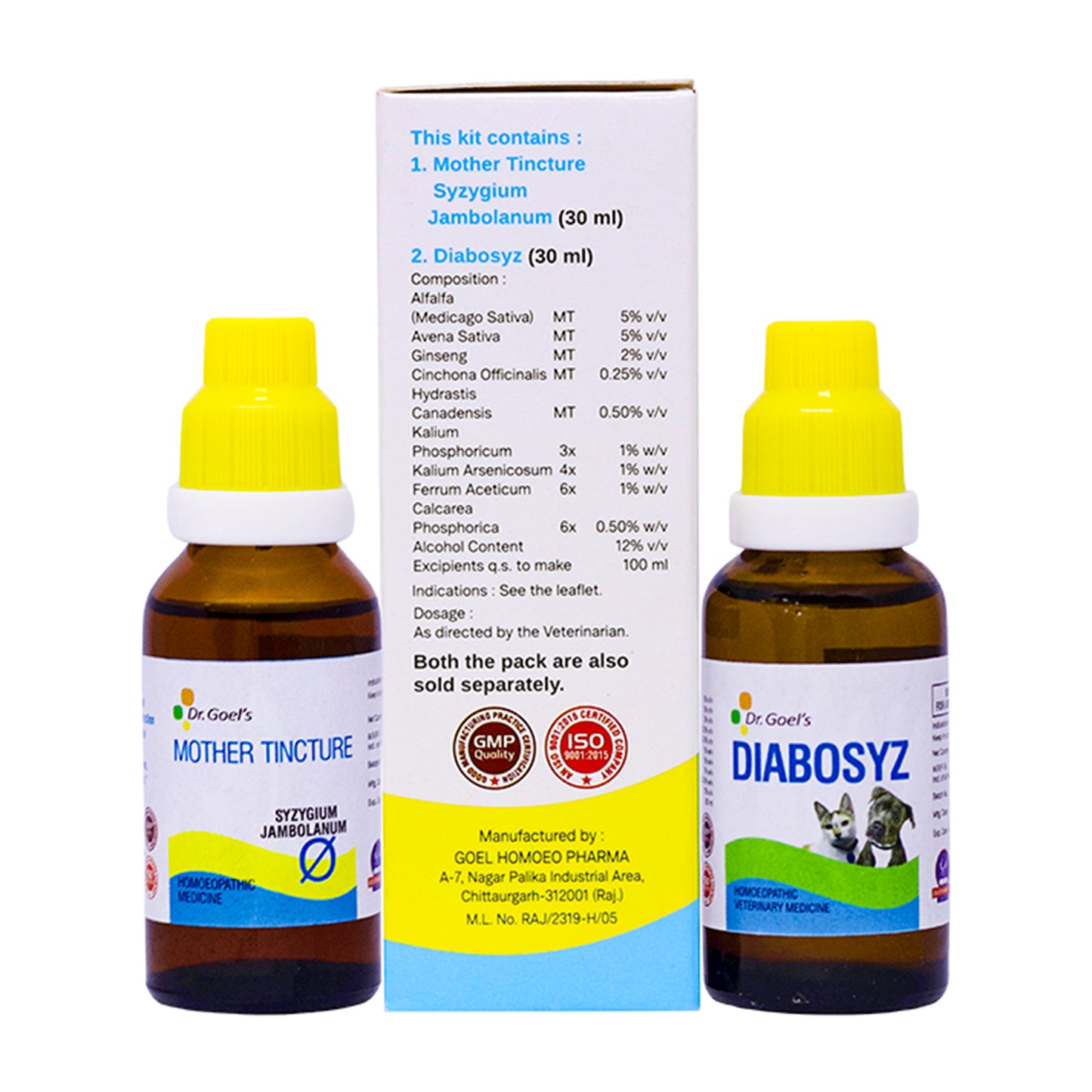
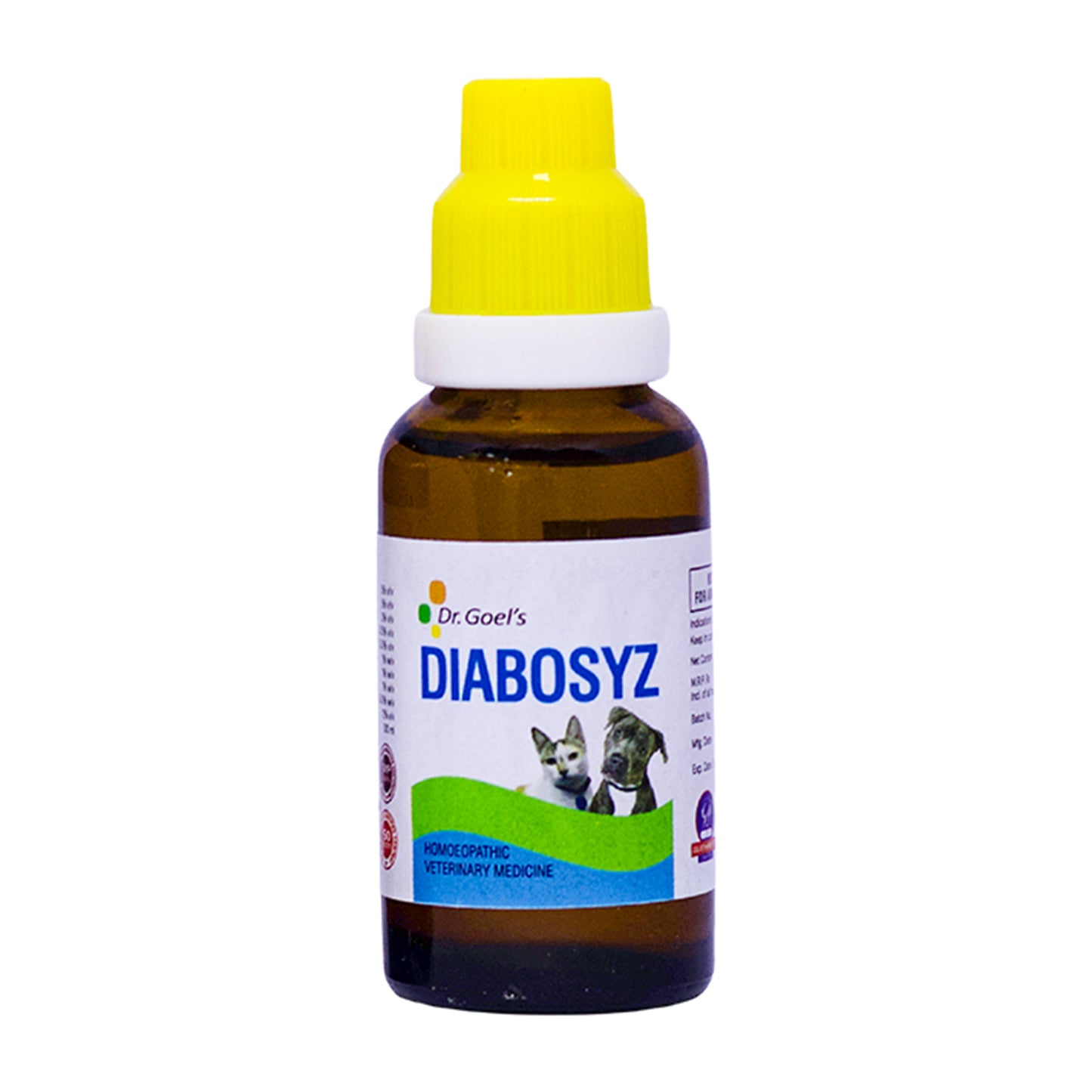
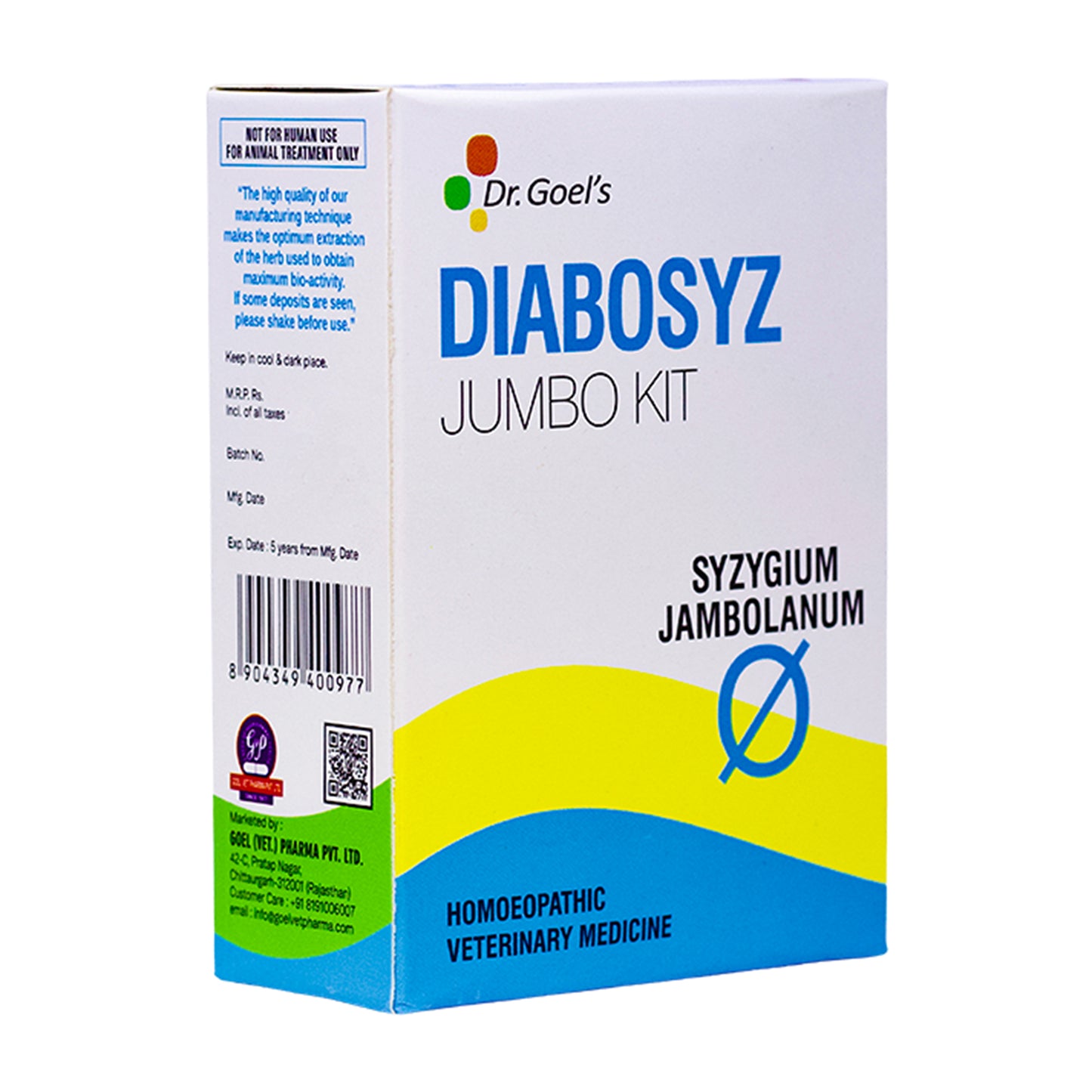
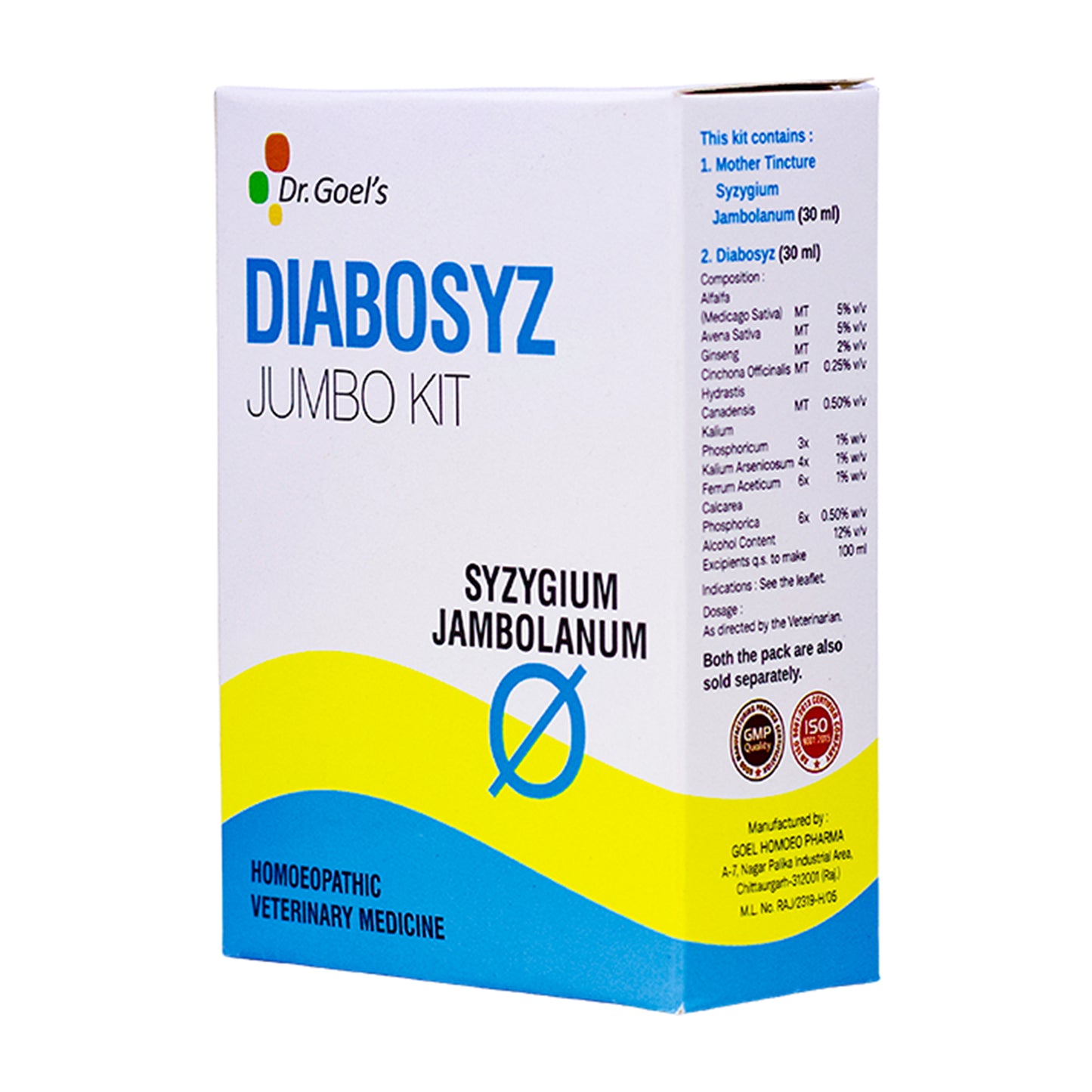
Trusted by Veterinarians
“As a veterinarian, I am thrilled to endorse Dr. Goel Vet Pharma’s homeopathic products for our furry friends. Their commitment to advancing homeopathic veterinary medicine is evident in the exceptional quality of their products. The innovative solutions they provide have significantly enhanced our ability to care for our animal patients, ensuring optimal health outcomes. I highly recommend Dr. Goel Vet Pharma’s products to pet parents for their unwavering dedication to the well-being of pet animals and the invaluable support they offer to the veterinarian community.”
– Dr. Sakshi Sharma (B.V.sc. & A.H. M.V.Sc , NET)
Blog posts
Frequently Asked Questions
How to give diabosyz and mother tincture
Mother tincture 15 drops 1 hour before meal Diabosyz 15 drops half an hour after meal This has to be repeated atleast 2 times a day”


